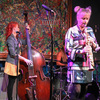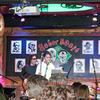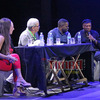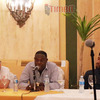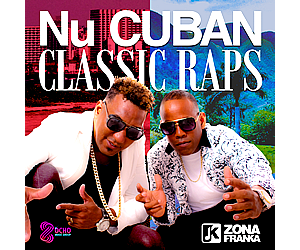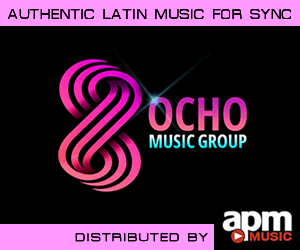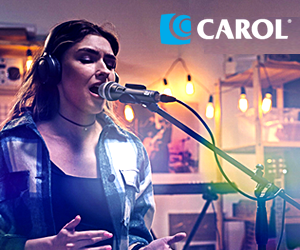Indice - Table of contents
New Stuff[hide]
Reportes: From The St... : Jazz Plaza ...
Fotos: Tom Ehrlich : Irakere 50th Annivers...
Fotos: Tom Ehrlich : Irakere
Resenas: Joey Altruda Presents: El Gran ...
Reportes: From The St... : Cubadisco 2...
Timbapedia: 09. Interviews -... : Carlos del Pino ...
Fotos: Tom Ehrlich : 2023 Monterey Jazz Fe...
Fotos: Tom Ehrlich : 2023 Monterey Jazz Fe...
Fotos: Tom Ehrlich : 2023 Monterey Jazz Fe...
Fotos: Tom Ehrlich : 2023 Monterey Jazz Fe...
Grupos: Tirso Duarte
Grupos: Tirso Duarte : Discography
Grupos: Charanga Habaner... : 8. El bla bla bla
Grupos: Pupy y los que S... : Tirso Duarte
Photos of the Day [hide]
SpanishEnglishEntrevista con Enrique Lazaga - Page 5
Do most of the RO musicians have formal training?
No, that was before the Revolution. And before the Revolution, there were music schools but very few.
Did you have a formal training?
No, me neither. I learned from my father. He was a musician, and before, the son of a carpenter was a carpenter, the mason’s son a mason, and the son of a musician had a good teacher in the family.
What instrument did your father play?
My father played trombone, bass and piano, and was an arranger. He was the arranger for Daniel Santos, for La Orquesta Sensación. So, I decided to become a musician and I began to study at the art and trade school, but… that was my destiny, to become a musician. Then I told my father that I didn’t want to study any more, that I wanted to be a musician. He asked me what I was going to play, and I told him the tumbadora. And that is how it was. At the time I didn’t have much technical knowledge, but I had the fundamentals and I started to study music.
Then the Revolution was victorious and lots of schools opened and we started studying. I had some really good teachers. I had a teacher called Rafael Lay, director of La Orquesa Aragón, who was a great musician and taught me a few things about harmony. And so, well, afterwards I became the director of RO.
Today, to be a band leader is not like before. Because before, anyone could come along and direct an orchestra, but today you have to have a formal background of orchestration, harmony and a whole series of other things. And when people see me playing the güiro and they don’t know who I am, they say, ‘Look at him; he’s just a güiro player.’ But they don’t know what that involves, that instrument, nor what I do. You know what I mean? Because it is not just the güiro, you see that piano; I sometimes make arrangements on the piano and stuff.
You're considered the greatest güiro player of all time.
The most honest [TN: In Cuban Spanish this can be interpreted as the most stupid, the least opportunistic].
You told me that you started to play the güiro in Tropicana, who taught you to play?
Nobody. I learned to play, listening to others. But before, music, percussion, was not taught, nor is it taught nowadays. Back then, you learned by watching whoever playing. Harmonic instruments, like violin, flute, trumpet, and piano; to play those instruments you need to be taught technique. You have to have a teacher. Percussion instruments, nowadays, are also taught. There are now percussion teachers, but back then you learned by watching someone and then started doing it yourself, and fought your way into the trade. Just like that, that’s how we did it.
What other instruments do you play, piano?
No, I don’t play piano; I use it for making my arrangements and that. And I was playing the timpani with a symphonic orchestra here. And like that, making ends meet.
You've written many of Ritmo Oriental's songs. Do you write on piano, guitar, sing into a tape deck?
No, I only use the piano for making arrangements, for orchestration; but to write a song, first comes the muse, or the lyrics, or first comes the melody and latter the lyrics. It depends. I’m not an author or a composer, I’m a rogue, but I have a few little songs such as Juana no me quiere porque yo no se bailar, Se baila así, etc.
How do you start, with the chorus or the melody?
Sometimes, a chorus comes to you, one of those choruses and you say, damn, that could be a song. And so, a song is born, or the chorus comes afterwards.
Real authors, real composers are the ones who could explain the technique well. Not me, the only thing I am is a musician.
Didn’t you compose the majority of RO’s songs?
No, the majority were composed by Juan Crespo Maza. He was an author.
But you did lots of the arrangements.
Yes, I did. That’s what I did… as I do now. I’m working with La Charanga de Oro and I arrange the songs we play. We are going to go to Spain and I’m working on some boleros, Perfidia, Angelitos negros, Estas en mi corazón by Ernesto Lecuona; these are some of the arrangements I’m doing right now. Look, this is something I’m doing for the fist time, because I’ve never written for a brass section. I’ve always been all about the charanga, so you see now I’m working with a trumpet and I’m doing something new. I’m learning; that’s how it is.
Going back to the early 1970s, how would you describe the scene in La Habana when Los Van Van, Ritmo Oriental and Irakere all came onto the scene?
Look man, at that time, I’m not going to tell you that the competition wasn’t hard; it was, because everyone wanted to be the peoples’ favorite band, to give the people what they wanted, and, well… we were lucky enough that the people liked the RO. Many also thought, let me tell you, many people thought that RO was from the Eastern [Oriente] part of the country. But it is not, RO is from here, from Havana, it was formed in Central Havana. It was the same orchestra that Revé had, only that the musicians didn’t want to play changüí anymore, and so yes, at that time there were two or three people from the eastern part of the country in the band.
Sports commentator Eddie Martin came up with the name because the band had a regular show on a radio station called CMC Reloj de Cuba, today’s Radio Rebelde, and Eddie Martin was the host… So he said, ‘Well if this isn’t changüí music, then it is oriental music, so let’s call you guys the RO.’
And that was it, that’s what we were called. Many people thought that the band was from the Eastern part of the country, but it was from the capital.
Do you think these bands influenced each other?
No, no, no. There wasn’t any sort of influence because everyone wanted to do something different. Everybody wanted to do something different, everyone had their fans. And often, the fans that one had were the same fans as Los Van Van or Irakere. But there were lots of people who just followed one band, but others followed, I wouldn’t say whatever was good, but others liked to have a good time with whomever, so they didn’t stick to one band. There were lots of people who would say, ‘I’m RO, I’m RO.’ But then there were also those who’d said, ‘Irakere…,’ and later, ‘Manolito…,’ and so on, they would have fun with everyone.










